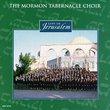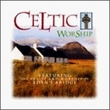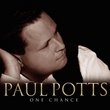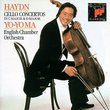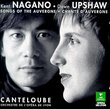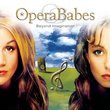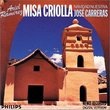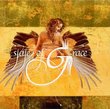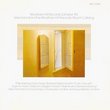| All Artists: Streicher, Stoll, Baumann, Shetler, Lopez-Cobos, Berlin Radio Symphony Orchestra Title: Bottesini: Works For Double Bass [Australia] Members Wishing: 0 Total Copies: 0 Label: Teldec Album Type: Import Genre: Classical Style: Number of Discs: 1 SwapaCD Credits: 1 UPC: 639842179928 |
Search - Streicher, Stoll, Baumann :: Bottesini: Works For Double Bass [Australia]
CD DetailsSimilarly Requested CDs
|
CD ReviewsAn instrument a day keeps boredom away.... Vera Kolb | Kenosha, WI | 01/07/2007 (4 out of 5 stars) "How could I possibly be bored with all these terrific records I am surrounded with, which I have so carefully lined up for the multiple listening and repeated enjoyment? But I am. I guess I am, horror of horrors, in a musically blasé state. So I dip in the collection of the records that I have acquired for the future gifts to my music friends. I find the recording of Giovanni Bottesini, with the work for the double bass, which I got for my colleague Jim, who plays this instrument. Oh, well, Jim would not mind if I listen to the record first!
I am looking at the record's cover and I recognize the name of one of the conductors, that of Hans Stadlmair. He has conducted also the most charming, unusual music, with the highest possible fun coefficient, namely the "Concertos for Jew's Harp and Mandora", composed by Albrechtsberger (who happened to be the teacher of Beethoven!). So, I allowed myself to extrapolate from this one point, and figured that this record should also be unusual and fun. This CD portrays the compositions of Giovanni Bottesini (1821-1889) for the double bass. Bottesini himself was a double-bass virtuoso. Bottesini played "as if he had imprisoned a hundred nightingales in his double bass", according to the CD's insert. I never rose to that particular image in my listening of this performance. The double bass sounded to me more like a cello with bronchitis than any nightingales, or other birds, for that matter. Having said that, I do realize that this is probably the top possible performance with this particular instrument. Yet, the bronchitic hollow sound was unpleasant to my ears, at least initially, before I got used to it. I do like Bottesini, however. He is very melodic, definitely singable, and his music appears to have a unique character. I like his "Concerto for the Double Bass and Strings in B Minor" (bands 1-3), but I feel that it would sound better if transcribed for the cello. The second piece, "Concerto for Violoncello, Double Bass and Orchestra in G Major", (played by Klaus Stoll as the double bass; all other pieces are played by Ludwig Streicher), is also lovely, but I would like to hear it transcribed, this time for the cello and viola. The rest of the CD contains a selection of pieces, some definitely technically extremely demanding, such as the "Tarantella in A minor". These pieces are melodic and lovely. Mr. Streicher plays them with an extreme dose of lyricism, and much accentuation, but the result is nonetheless beautiful. I definitely warmed up to the sound of Mr. Streicher in these pieces, and have lost my desire to hear them played on different instruments. The double bass has definitely legitimized itself, and I really liked "Capriccio di Bravura in A Major", and "Introduction e Gavotte" in the same major. The grand conclusion of this CD is a beautiful "Grande Allegro di Concerto per il Contrabasso e Pianoforte in E minor", in which I have also enjoyed the piano part. " |

![Bottesini: Works For Double Bass [Australia]](https://nationalbookswap.com/cd//l/90/1190/6151190.jpg)
